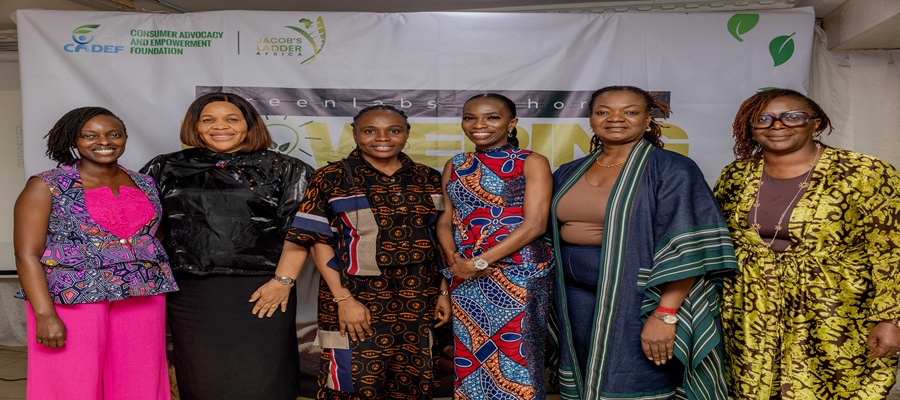News
NESREA Urges Nigerians to Dispose Batteries Properly to Avoid Hazards

National Environmental Standards and Regulations Enforcement Agency (NESREA) has urged Nigerians to dispose of used batteries responsibly to prevent environmental and health hazards.

Innocent Barikor, director-general of NESREA, stressed the need to upgrade the lead-acid battery recycling sector in Nigeria and Africa.
He told Vanguard Newspaper recently that improper disposal of batteries poses severe risks to public health and called for strict adherence to environmental regulations.
He noted that Nigeria had already introduced regulations for the battery sector and emphasized the need for enforcement.
Barikor also highlighted the importance of standardizing battery recycling regulations across Africa, stressing that non-uniform policies hinder progress.
He further noted that the recent international conference was organized to bring together stakeholders and experts from other countries to discuss solutions and best practices for improving lead-acid battery recycling in Africa.
He said, “Nigerians should simply avoid breaking batteries. There are registered collectors trained to handle used batteries. If you’re through with your battery, send it to the people who know how to collect and dispose of it properly.
“The regulation is not meant to shut down businesses but to ensure batteries are handled responsibly. More batteries will be needed due to the transition to green energy, but we must prevent lead contamination.
“Part of the challenge we have today is the lack of standardization among African countries. If regulations are uniform, companies will have no choice but to comply,” he said.
Also speaking, Dr. Leslie Adogame, executive director, Sustainable Research and Action for Environmental Development (SRADeV), called for cleaner recycling technologies in the lead-acid battery sector.
According to Adogame, a policy framework was developed following global concerns over Nigeria’s lead recycling practices, which led to increased scrutiny from international investors.
He explained that European investors buying lead from Nigeria had cut ties with some facilities due to pollution concerns, which prompted regulatory changes.
He said, “When we examined the industry, we found many sharp practices under the guise of recycling. While recycling is good, brown recycling—where pollution is not controlled—is harmful.
“You cannot put the economy above people’s health. If facilities must be shut down to protect lives, then that’s what should be done,” he stated.
On the adoption of cleaner technologies, Adogame added, “We are not promoting a particular technology, but industries must embrace best practices. If you must recycle, use equipment that does not pollute the environment.”
Meanwhile, Andreas Manhart, coordinator of the Partnership for Responsible Battery and Metal Recycling (ProBaMet), highlighted efforts to improve lead-acid battery recycling in Nigeria.
He noted that informal recycling practices contribute to severe pollution and called for sustained efforts to protect public health.
“The project has introduced improved recycling technologies, trained recyclers, and worked with government agencies to enforce stricter regulations.
“Continuous enforcement of environmental laws, investment in modern recycling facilities, and stronger collaboration between stakeholders are necessary to minimize lead contamination,” he added.
News
NITDA Explores Partnership with Trust Stamp on Digital Trust and Innovation

By Naeemah Junaid
The National Information Technology Development Agency (NITDA) has held strategic discussions with representatives of Trust Stamp, a NASDAQ-listed global technology company, to explore potential areas of partnership aimed at strengthening Nigeria’s digital trust framework and advancing innovation within the digital economy.

The meeting, chaired by NITDA Director General, Kashifu Inuwa Abdullahi, focused on identifying collaborative opportunities aligned with Nigeria’s digital transformation agenda and the Agency’s strategic priorities for building a secure, inclusive, and innovation-driven digital ecosystem.
Inuwa emphasised that trust remains a critical foundation for the growth of the digital economy, noting that secure systems and strong cybersecurity frameworks are essential for driving innovation, economic growth, and national development. He stated that building trust in digital platforms and services is key to accelerating adoption and unlocking opportunities across sectors.
He reiterated NITDA’s mandate as a regulator to create an enabling environment through forward-looking policies and regulatory frameworks that support innovation rather than promote specific technologies. According to him, government interventions are designed to stimulate markets, create opportunities, and empower both businesses and citizens to participate fully in the digital economy.
The Director General further reaffirmed Nigeria’s openness to investments that strengthen digital infrastructure and enhance digital services, stressing that sustainable national development is best driven by private sector participation under supportive regulatory and policy frameworks. He called for continued engagement to ensure alignment with national priorities and effective integration into Nigeria’s digital ecosystem.
In his remarks, Trust Stamp Vice President, Jonathan Pasha, highlighted the company’s global experience in secure verification and trust technologies, describing its approach as partnership-oriented and focused on delivering long-term value within local ecosystems. He noted that the company prioritises collaboration with governments and private sector stakeholders to address local challenges and expand access to secure digital services.
Pasha referenced Trust Stamp’s ongoing operations in Nigeria, including its collaboration with a telecommunications provider to enhance SIM swap prevention and fraud detection capabilities. He also outlined the firm’s biometric tokenisation technology, which converts biometric data into secure, privacy-preserving representations, enabling verification processes without exposing sensitive information.
He explained that the technology supports secure verification, fraud prevention, financial inclusion initiatives, and the tokenisation of real-world assets, while being designed to function effectively in low-connectivity environments and on low-specification devices to expand access to digital services.
Both parties expressed interest in advancing technical-level discussions to identify specific areas of collaboration aligned with national priorities and Nigeria’s digital transformation objectives.
NITDA reaffirmed its commitment to fostering a secure and trusted digital economy through strategic partnerships, robust regulatory frameworks, and initiatives that promote innovation, inclusion, and sustainable growth.
News
Geocycle, Ecobag Mart, Leovia Farms emerge winners at Greenlabs Demo Day

Three youth-led startups — Geocycle, Ecobag Mart and Leovia Farms — have emerged top winners at the Greenlabs Cohort 2 “Powering Food Systems” Demo Day, securing pre-seed funding to scale solutions targeting Nigeria’s food insecurity, post-harvest losses and climate pressures.

CADEF
The Demo Day, hosted under the Greenlabs Incubation Programme powered by the Consumer Advocacy and Empowerment Foundation (CADEF) in partnership with Jacobs Ladder Africa (JLA), spotlighted 16 innovators selected through a nationwide call and intensive mentor-guided screening process.
Organisers said the winning solutions stood out for their scalability, environmental sustainability and potential to strengthen fragile agricultural value chains. The pre-seed support will fund prototype refinement, business registration, market validation and early commercial deployment.
Other finalists showcased at the event included Agricool and Dry Heat Solutions, with all participants advancing into a structured nine-month incubation programme focused on enterprise development, expert mentorship and access to growth resources aimed at transforming early-stage ideas into viable green businesses.
Delivering the keynote on behalf of the Permanent Secretary, Ministry of Agriculture and Food Systems, Emmanuel Audu Fatai described the emergence of the winners as proof that youth innovation is becoming central to Africa’s food future.
According to him, the continent’s vast agricultural potential continues to coexist with food shortages, climate stress and weak value chains, making technology-driven and energy-efficient solutions critical to achieving sustainable food security.
Executive Director of CADEF, Prof. Chiso Ndukwe-Okafor, said the selection of the three winners reflects the programme’s shift from ideas to impact-driven enterprises capable of creating jobs and delivering measurable community value.
She added that beyond funding, the incubation framework is designed to instil financial discipline, integrity and long-term business sustainability among participating founders.
Chief Innovation Officer at Jacobs Ladder Africa, Karen Chelang’at, noted that the winning solutions directly address real food-system failures through renewable-energy integration, loss reduction and productivity improvement across sectors such as poultry, aquaculture and agricultural logistics.
She emphasised that the ultimate measure of success will be the ability of the startups to achieve market readiness, scale operations and generate tangible economic and environmental impact.
Organisers stressed that while policy support remains important, cross-sector collaboration and youth-driven enterprise will play a decisive role in building resilient food systems and advancing Nigeria’s transition to a green economy.
With incubation now underway and funding secured, the emergence of Geocycle, Ecobag Mart and Leovia Farms marks a significant step toward translating youth innovation into practical solutions for Nigeria’s food and climate challenges.
News
NDIC Moves to Boost Customers’ Confidence in Nigerian Banks

The Nigeria Deposit Insurance Corporation (NDIC) has reaffirmed its commitment to safeguarding the nation’s financial system, announcing that its recent upward review of the maximum deposit insurance coverage now protects about 99% of depositors in the Country.

Kabir Katata, Executive Director (Operations), NDIC, stated this on Wednesday at the Corporation’s 2025 Stakeholders’ Town Hall Meeting held in Enugu.
Katata, while speaking on the theme, “Deepening Stakeholder Engagement,” said the policy to expand deposit insurance coverage was deliberately designed to protect small savers, promote financial inclusion and strengthen public confidence in the banking sector.
He explained that the town hall meeting was aimed at engaging stakeholders across various sectors, including academia, market associations and civil society groups.
“The essence of this town hall meeting is to interact with our stakeholders, tell them what we do and listen to their questions so they can better understand the role NDIC plays in society. We guarantee depositors’ funds and supervise banks to ensure that depositors are protected”, he said.
Katata noted that following the 2024 review of deposit insurance coverage, depositors in Deposit Money Banks (DMBs), Mobile Money Operators (MMOs) and Non-Interest Banks (NIBs) are now insured up to N5 million per depositor.
Similarly, depositors in Microfinance Banks (MFBs), Primary Mortgage Banks (PMBs) and Payment Service Banks (PSBs) now enjoy insurance coverage of up to N2 million per depositor.
“This means that in the event of a bank failure, depositors are promptly paid up to the insured limit,” he said.
He added that depositors with balances exceeding the insured limit would receive the initial insured sum, while the outstanding balance would be paid as liquidation dividends upon realisation of the failed bank’s assets and recovery of debts.
Highlighting improvements in the payout process, Katata referenced the recent resolution of defunct institutions, including Heritage Bank Limited, Union Homes PLC and Aso Savings and Loans PLC.
He said that the Corporation successfully leveraged the Bank Verification Number (BVN) as a unique identifier to trace depositors’ alternative accounts and transfer insured sums within days of bank closures.
“I urge all depositors to ensure that their BVN is properly linked to their bank accounts and identity records. This greatly facilitates seamless and timely access to insured deposits in the event of bank failure,” he advised.
Katata emphasised that although the NDIC works closely with the Central Bank of Nigeria (CBN) to ensure sound corporate governance and regulatory compliance in banks, financial system stability remains a shared responsibility.
“While the CBN and NDIC continue to strengthen oversight, depositors also have a responsibility to remain vigilant and well-informed,” he said.

 E-Financial2 days ago
E-Financial2 days agoNDIC Intensifies Failed Banks Debt Recovery to Accelerate Depositors Payout

 News2 days ago
News2 days agoOpen Access Data Centres Acquires Seven NTT Data Centres Across South Africa

 Telecom2 days ago
Telecom2 days agoNIMC Flags Nationwide Ward-Level NIN Enrollment Drive from February 16

 E-Business2 days ago
E-Business2 days agoKaspersky Brings more Transparency to Threat Detection with New Hunt Hub

 Telecom2 days ago
Telecom2 days agoFG Seeks Private Sector Partnership to Bridge Broadband Gap

 General News2 days ago
General News2 days agoNigeria Market Powers Jumia’s Momentum as E-commerce Platform Demand Accelerates

 E-Business2 days ago
E-Business2 days agoCybersafe Foundation Partners Google to Strengthen Cybersecurity Among CCIs in Africa

 E-Financial2 days ago
E-Financial2 days agoUBA Revamps Agency, Unveils Enhanced Value on RedPay Terminals
























